 Petzlover
Petzlover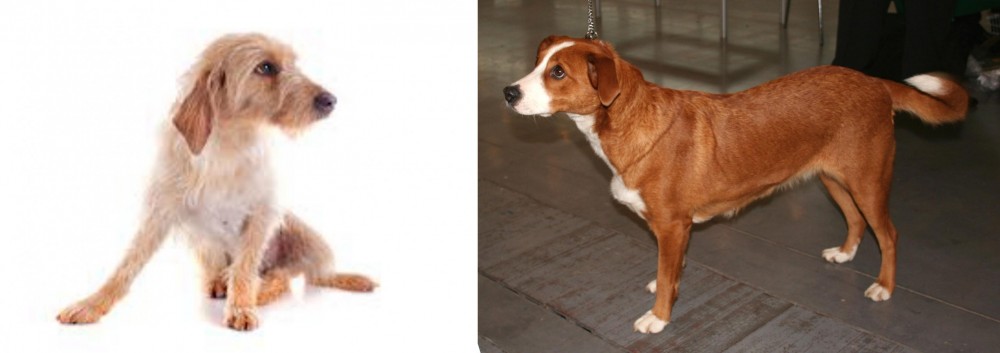 Basset Fauve de Bretagne is originated from France but Osterreichischer Kurzhaariger Pinscher is originated from Austria. Basset Fauve de Bretagne may grow 12 cm / 4 inches shorter than Osterreichischer Kurzhaariger Pinscher. Both Basset Fauve de Bretagne and Osterreichischer Kurzhaariger Pinscher are having almost same weight. Both Basset Fauve de Bretagne and Osterreichischer Kurzhaariger Pinscher has same life span. Both Basset Fauve de Bretagne and Osterreichischer Kurzhaariger Pinscher has same litter size. Basset Fauve de Bretagne requires Low Maintenance. But Osterreichischer Kurzhaariger Pinscher requires Moderate Maintenance
Basset Fauve de Bretagne is originated from France but Osterreichischer Kurzhaariger Pinscher is originated from Austria. Basset Fauve de Bretagne may grow 12 cm / 4 inches shorter than Osterreichischer Kurzhaariger Pinscher. Both Basset Fauve de Bretagne and Osterreichischer Kurzhaariger Pinscher are having almost same weight. Both Basset Fauve de Bretagne and Osterreichischer Kurzhaariger Pinscher has same life span. Both Basset Fauve de Bretagne and Osterreichischer Kurzhaariger Pinscher has same litter size. Basset Fauve de Bretagne requires Low Maintenance. But Osterreichischer Kurzhaariger Pinscher requires Moderate Maintenance
 The Basset Fauve de Bretagne from France was introduced to the UK in 1983, and this smallest of the French hounds is rarely seen outside France, and when you do it is in Britain. This French hunting breed belonging to the Hound group in all likelihood descends from the Grand Fauve de Bretagne which is now extinct.
The Basset Fauve de Bretagne from France was introduced to the UK in 1983, and this smallest of the French hounds is rarely seen outside France, and when you do it is in Britain. This French hunting breed belonging to the Hound group in all likelihood descends from the Grand Fauve de Bretagne which is now extinct.
Long ago the dog was used for hunting and there was even a time when it was on the brink of extinction.The breed became very rare but was later bred with the Basset Griffon Vendeen as well as the Wire Haired Dachshund which has resulted in the breed we have today. The first Basset Fauve was imported into the USA in November 2001.
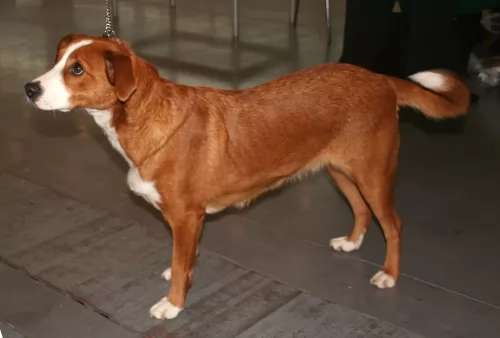 Hailing from Austria, the Osterreichischer Kurzhaariger Pinscher, better known as the Austrian Short-Haired Pinscher has always been depicted on paintings from the Baroque period.
Hailing from Austria, the Osterreichischer Kurzhaariger Pinscher, better known as the Austrian Short-Haired Pinscher has always been depicted on paintings from the Baroque period.
The dog is a terrier-type canine and has always been used as a watchdog but he was also used to hunt because of the terrier qualities he possesses.
This dog has always been used for working on farms. Breeding of this dog started in 1921 and the dog was recognized by the United Kennel Club in 2006.
 The Basset Fauve de Bretagne is a smallish hound, with a long body and deep chest. He is lively and friendly. He is a wire-coated dog, looking similar to a golden cocker spaniel, but his coat is coarse and quite springy and wiry to the touch. He is nimble, he has plenty of courage, he is lively, friendly and amenable. He has short legs, but unlike other Basset breeds, these don’t have that crooked, turned outwards appearance that the Basset Hound has.
The Basset Fauve de Bretagne is a smallish hound, with a long body and deep chest. He is lively and friendly. He is a wire-coated dog, looking similar to a golden cocker spaniel, but his coat is coarse and quite springy and wiry to the touch. He is nimble, he has plenty of courage, he is lively, friendly and amenable. He has short legs, but unlike other Basset breeds, these don’t have that crooked, turned outwards appearance that the Basset Hound has.
The tail is fairly long and held upright when the dog is alert. He has long low-set ears which reach roughly to the end of the nose. The coat is always wheat- or fawn or red in color. The Basset Fauve de Bretagne, also referred to as the Fawn Brittany Basset isn’t quite as low to the ground as the Basset Hound, measuring 32 – 38 cm.
Small, stocky and feisty, this rough-coated Basset is energetic, agile and quick and you’ll find that he gets on well with children as well as other pets in the house. Some training and socialization will go a far way to make him an even more super dog than what he is. He’ll make a wonderful family pet and will adapt well to country living as well as living in the city, if he can rely on you to take him for walks.
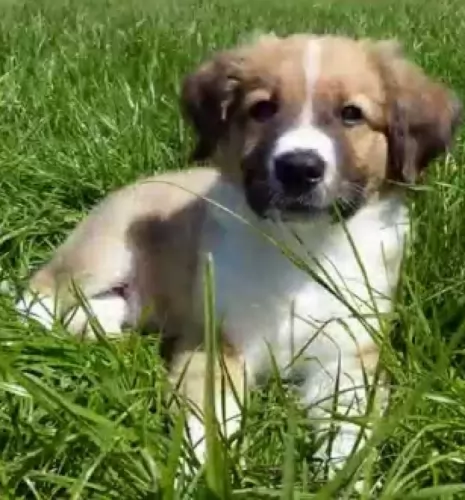 As a medium sized dog, both males and females stand at between 42 and 50cm in height and the dog weighs roughly between 14 and 20kg.
As a medium sized dog, both males and females stand at between 42 and 50cm in height and the dog weighs roughly between 14 and 20kg.
The coat is shortish, dense and smooth and is essentially black and tan with some white, fawn or brindle. The ears of the dog are fairly short and they look as though they wanted to be erect but then decided to be floppy. The nose is black and the eyes dark brown.
The tail is usually docked but when it is left long, it curls over the back. If you want your dog to be bred you can expect between 4 – 6 puppies.
These are playful dogs, getting on well with their human families and wanting to get involved in their activities. They are suspicious of strangers. They are good with kids, making them a good playmate, but they don’t like small children being allowed to climb over them.
They are able to get along well with any other pets in the house. It would be to your benefit to have the dog trained and socialized as he becomes obedient and good around people in social settings. He is an intelligent dog and will find training easy.
They also take their role as guardian and protector seriously.Because he was bred to be a farm dog, he wouldn’t e able to adapt to life on a tiny property in the city.
 Smart and courageous, the Basset Fauve is such a wonderful pet to have in your home. He is gentle, loving and loyal and will adapt to living in the countryside or the city, so long as he is loved, fed well, exercised and given lots of attention.
Smart and courageous, the Basset Fauve is such a wonderful pet to have in your home. He is gentle, loving and loyal and will adapt to living in the countryside or the city, so long as he is loved, fed well, exercised and given lots of attention.
He was once a serious hunter, but these days he is most content to be friend and protector for his human family.
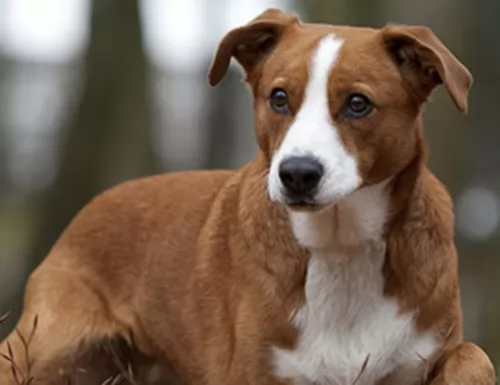 Have your Osterreichischer Kurzhaariger Pinscher trained and socialized if you want him to be amicable and obedient around you and your visitors.
Have your Osterreichischer Kurzhaariger Pinscher trained and socialized if you want him to be amicable and obedient around you and your visitors.
He does well with a human family who are firm, kind and patient with him. He loves to be kept busy with both mental and physical exercise, thriving on challenging activities, and he will become frustrated if he is left day after day just to lie around.
Take him with you on walks, buy him nice chewy, stimulating toys, throw a ball or frisbee with him and include him in your activities.
This is a dog more suited to life in the countryside as opposed to life in the city. Care well for this splendid family pet and you’ll quickly begin to see why dogs like him are known as man’s best friend.
 The Basset Fauve is free from inherited health problems in the UK and is in fact one of the hardiest of the Basset group. Like all Basset type breeds, as a dog owner you’ll have to keep an eye on your Basset Fauve as he can develop back problems as he gets older.
The Basset Fauve is free from inherited health problems in the UK and is in fact one of the hardiest of the Basset group. Like all Basset type breeds, as a dog owner you’ll have to keep an eye on your Basset Fauve as he can develop back problems as he gets older.
When it comes to your Basset Fauve’s health, make sure he gets all his shots, starting from when he is a puppy. Many of the dangerous canine diseases can be prevented with vaccines.
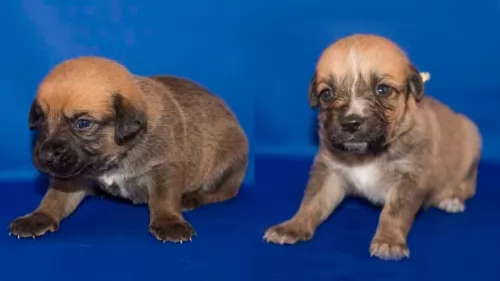 The Austrian Short-haired Pinscher is a robust kind of dog that isn’t going to have you rushing to the vet very often. True, he does have some hereditary health issues but it is highly unlikely that you will find these health issues in your pet.
The Austrian Short-haired Pinscher is a robust kind of dog that isn’t going to have you rushing to the vet very often. True, he does have some hereditary health issues but it is highly unlikely that you will find these health issues in your pet.
Nonetheless it pays to know about one of the more serious conditions -
This is a heart disease that is present from birth and could have been passed down from the parent dog to the puppy. A congenital heart defect occurs as a malformation of any valve, with the most common congenital heart diseases in dogs being patent ductus arteriosus, pulmonic stenosis as well as subaortic stenosis, all potentially inherited defects.
Sometimes a dog can live a fairly normal life with this disease but other times there are complications which can lead to congestive heart failure and atrial fibrillation, causing symptoms such as difficulty with breathing, cough and weakness. Your dog will need to get to the vet to discuss treatment options.
 The Basset Fauve is easy to maintain, and all that is required from you is to brush his wiry coat at least twice a week to remove all loose hairs. Look out for too much hair in the ear passage and remove it. The teeth should be brushed a couple of times a week with a dog toothpaste and brush to avoid plague build-up and the claws should also be trimmed.
The Basset Fauve is easy to maintain, and all that is required from you is to brush his wiry coat at least twice a week to remove all loose hairs. Look out for too much hair in the ear passage and remove it. The teeth should be brushed a couple of times a week with a dog toothpaste and brush to avoid plague build-up and the claws should also be trimmed.
Daily walks will be imperative for your Basset Fauve as he is an energetic dog and will need regular exercise. Just ignoring his energetic side will make him frustrated, bored and even destructive.
This breed of dog used to hunt small game and so he is lively and energetic. Because of this he will need a high-quality dog food. Always buy the best commercially manufactured dog foods and speak to your vet about the best one, and whether dry- or wet foods would best suit your canine friend. You want to provide your pet with variety, and it is imperative to include some raw- and cooked meat to his regular dog food to ensure he doesn’t battle with an itchy, dry skin.
Dog foods suited to age, activity levels and stage of life can ensure your dog is always energetic, full of life, healthy and happy and not prone to putting on weight. Always ensure that clean, cool water is constantly available to your pet.
If you get a puppy from a reputable breeder, they will tell you what the puppy’s feeding schedule has been. Make sure to stick to the same routine for a while so that your puppy doesn’t have any tummy upsets.
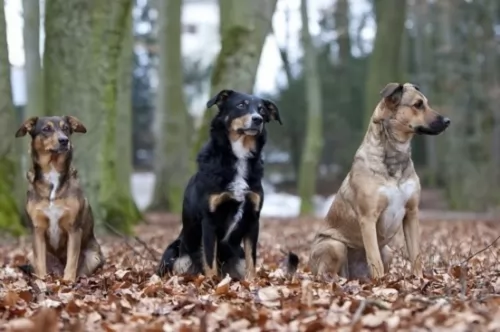 They need quite a lot of exercise, and even though they can adopt to life in the countryside or the city, they will require regular walks, ball- and rope games to prevent them becoming bored, frustrated and destructive.
They need quite a lot of exercise, and even though they can adopt to life in the countryside or the city, they will require regular walks, ball- and rope games to prevent them becoming bored, frustrated and destructive.
The Austrian Short-haired Pinscher sheds quite a bit so he will need to be brushed at least twice a week to remove the loose hairs.
As a medium sized, energetic dog, you want to ensure you maintain your dogs energetic nature by providing him with excellent food.
Choose your commercially manufactured food carefully as some of them are of a poor quality and can actually be detrimental to your dog’s health. Choose a high quality kibble that has quality ingredients.
Home-made food such as boiled chicken, brown rice or pasta and vegetables such as carrots, spinach and sweet potatoes all chopped up and added to his kibble occasionally will do wonders for this dog. He will thrive on also getting in some raw meat from time to time.
Ensure a constant supply of fresh, cool water.